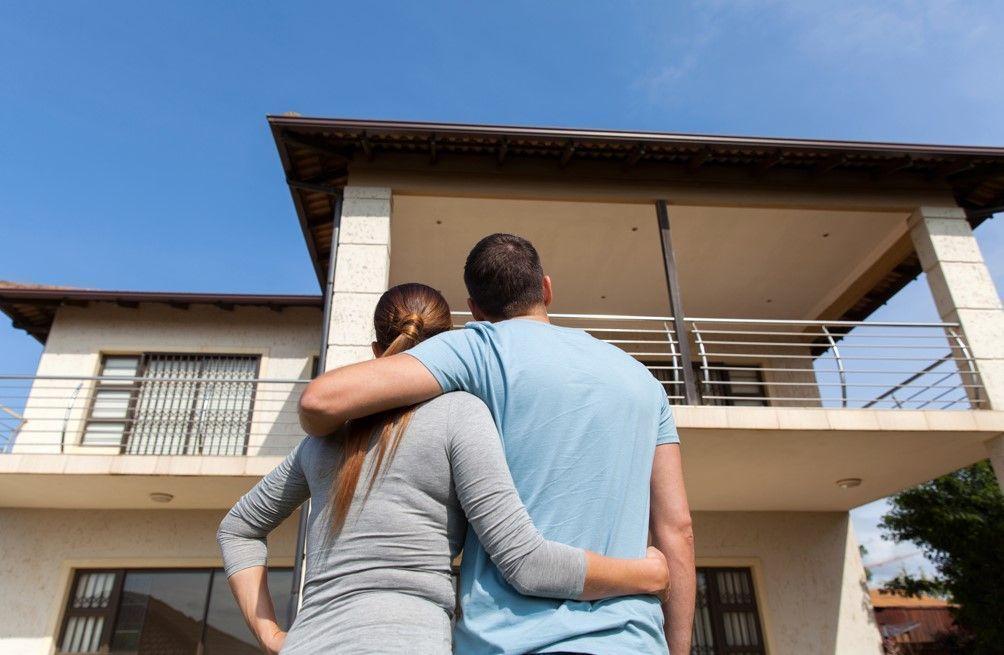Key Takeaways
- Cleveland, Ohio; Memphis, Tennessee; Dallas-Fort Worth, Texas; Prescott, Arizona; and Huntsville, Alabama are great places to buy if you're looking for affordability
- Affordability is one of the most important considerations when deciding where to buy a home.
- Certain housing markets may be more buyer-friendly than others in terms of the median cost of housing and the overall cost of living.
- Other factors when buying a home can include job opportunities, amenities, and schools.
When deciding where to buy a home, you can gauge overall housing market trends. Some markets are hotter than others in terms of home prices, available home inventory, and competition from other buyers. The overall cost of living and quality of life can also influence prices of homes.
Best Housing Markets by the Numbers
The following are five markets to consider if you're looking for the best place to buy a house.
Cleveland, Ohio
Cleveland may be a haven for homebuyers who are seeking big-city living at affordable prices. According to data from Realtor.com, the median home price is $190,000, which is a decline of 8.5% year-over-year.1 Overall, housing expenses in Cleveland are 12% lower than the national average, according to PayScale data.2
Cleveland and similar large metro cities on the East Coast are buyer's markets, Martin Carreon, broker and owner of SoCo Wine Country Properties in Santa Rosa, Calif., told The Balance in an email. That's because there's less competition in these markets overall, leaving buyers more space to bargain with lower bids.
"Buyers can expect a percentage discount of 3.9% at least of the final sale price," Carreon said.
Memphis, Tennessee
Memphis is another midsized market that may be promising for buyers looking to settle near the East Coast. The median home price is $227,000, and home prices are down 4.6% year-over-year.
Memphis is perhaps best known for its music scene, and barbecue is a staple of the local food culture. The city is family-friendly, with plenty of parks and outdoor space, good schools, and a moderate crime rate.
Dallas-Fort Worth, Texas
Looking for a warmer climate and bargain prices? If so, you might consider a move to the Lone Star State.
"Dallas-Fort Worth is still surprisingly somewhat buyer-friendly," said Tyler DeMando, founder of OnDemandRealty based in Frisco, Texas. He said home inventory has finally caught up with demand, easing competition among buyers. The median home price is $425,000, which is more expensive than Cleveland or Memphis, but nearby towns such as Royse City and Forney may appeal to deal hunters, DeMando said.1
"Both cities are just 15 minutes away from Dallas. However, they still offer all the amenities people are accustomed to within a larger city," DeMando said.
Note
If you're looking at the suburbs of a major metro area, factor in commute times and gas prices into your buying decision. In some cases, buying a more affordable home farther from your work may make more sense. In other cases, the savings may not be substantial.
Prescott, Arizona
Prescott offers a lifestyle geared toward people who enjoy the outdoors and warmer temperatures. The median list price is $622,300, which is well above some homebuyers' budgets as of the first quarter of 2022, Realtor.com data showed. But housing was still 13% more affordable than the national average, according to PayScale as of May 2022.3
According to data from CoreLogic, the odds of a price drop are significant, with a 70% probability of a decline in the next year as of March 2022. Understanding housing price trends is key to finding a good deal. Consider markets where your home would most likely have a good resale value if you decide to move later and do not want to lose money.4
Note
A decline in home prices in Prescott could open the door to savings for buyers who want to move to a sunny locale. Keep in mind that the area is popular among retirees, so it may be less suited to young singles or families.
Huntsville, Alabama
Huntsville was deemed a "hidden gem" of the 2022 housing market by the National Association of Realtors, due to its moderately priced homes and strong job growth. It also has good access to broadband services and good infrastructure, which has attracted business and workers and boosted home prices. In a three-year period, home prices in Huntsville rose 24.6%, jobs increased by 4.7%, and the population increased 5.6%.5
The median listing price was $300,000 in April 2022, which was up 17.1% year-over-year. Housing costs are about 26% below the national average as of May 2022, and the cost of living was 5% lower, according to PayScale.67
Buyers are also attracted to its highly rated public schools, diversity, and ample activities for families.
Note
When determining the costs of a home in a particular location, consider whether you'll need special insurance coverage for hurricanes, floods, or other events not covered by a standard homeowners policy for that area.
Other Home Location Factors To Consider
Location and the overall housing market are important, but other factors can play a role in where you decide to buy a house.
Proximity to Work
Making the daily commute to work can be time-consuming and costly, especially when gas prices are on the rise. So it's important to include the distance from home to work in your cost calculations. Living closer to your work means a shorter commute and less money spent on gas.
However, also consider the merits of living a bit farther away from your desired location, DeMando said. For instance, moving 10 to 15 minutes farther out means a longer commute, but it could save you hundreds on your monthly mortgage payment if you can find a lower-priced home. And location may be less important if you're able to work from home for part or all of the work week.
Job Opportunities
If you're looking for your first job or your next job, factor in job growth when deciding where to buy a house. A city might meet all of your criteria for cost and quality of life, but if you can't find a job, then it doesn't matter how affordable it is.
Note
Look at job growth trends for any city you're considering. Are new jobs being created at a steady pace? Has job growth become stagnant? Is the job market shrinking? The U.S. Bureau of Labor Statistics (BLS) has an online database you can use to check employment trends in U.S. metro markets.
Access to Friends and Family
Moving to a new city could mean living closer or farther from family and friends. Many buyers prioritize access to friends and family when deciding where to buy. For example, if you're planning a cross-country move, think about how often you'd return to visit your loved ones. Consider costs you may face, such as flights, rental cars, or other travel expenses.
Your Preference for Commotion or Quiet
You may also want to consider the culture of the area. Urban cities may have a more active nightlife scene, which younger buyers may prefer. But if you prefer to spend most of your nights at home, you may want to look to the suburbs or even the countryside.
Factor in conveniences as well. Living in a rural area, for example, may mean a longer drive to the grocery store, fewer job opportunities, or fewer school options.
Your Budget
Think about your budget for buying a home. That includes how much you can afford to pay toward a mortgage each month. It also means budgeting for other costs, such as your down payment, closing costs, and the expenses you'll pay to own a home year to year.
Note
Living in a more-expensive area could mean a larger property tax bill or higher rates for homeowners insurance. HOA fees can add to your total cost of home ownership, along with repairs, maintenance, and upkeep. Looking at the total financial picture can help you choose a housing market and a home that fits your budget.
Putting It All Together
Finding the best place to buy a house is a personal decision. It's important to consider what's going to work best for you financially and with regard to the kind of lifestyle you want to have. It can help to first make an inventory of your “must haves,” then a second list of “nice to have” features. Comparing those lists to your homebuying budget can help you narrow down which markets to target.
Nick Barber, principal real estate broker for Ember Co-Ownership Homes, suggests buying a home in a location where you would be comfortable for the next 10 years. "If the market takes a downturn, you'll still be happy you chose the area,” Barber told The Balance in an email. “If home prices continue to rise, it will put you in the driver's seat to make a change or enjoy your well-planned and thought-out purchase."
Frequently Asked Questions (FAQs)
How do I prepare to buy a house?
Preparing to buy a house starts with creating a homebuying budget so you know what you can afford. Improving your credit score can raise your odds of getting approved for a mortgage at a good interest rate. You'll also want to work on saving money toward a down payment and closing costs.
What credit score do I need to buy a house?
The minimum credit score you'll need to get approved for a mortgage if you plan to borrow will vary by loan type and lender. Government-backed loans such as FHA or VA loans have different credit score requirements than conventional loans. So you may be able to get an FHA loan with a 580 credit score, but a lender might require a score of 640 or better for a conventional loan. The higher your score, the lower your interest rate is likely to be.
How much do I need to save to buy a house?
The amount you need to save to buy a house depends on your homebuying budget and the type of mortgage loan you're getting. FHA loans, for example, allow you to buy a home with as little as 3.5% down. If you're getting a conventional loan, on the other hand, you'll need a 20% down payment to avoid private mortgage insurance. Closing costs typically run between 2% and 5% of the home's purchase price.





